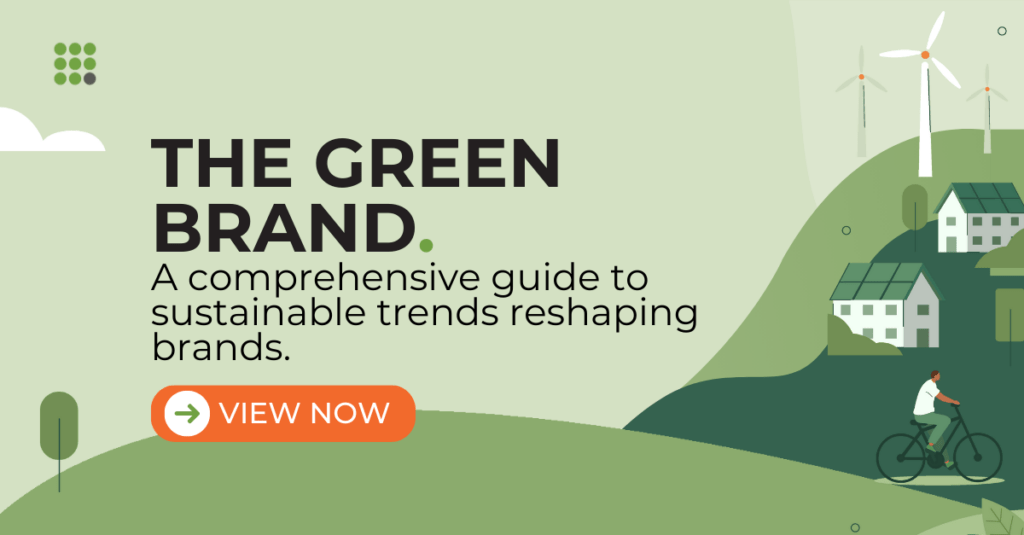Our latest market research study, The Green Brand, offers key insights into how eco-conscious adults view and respond to sustainability across major global regions. This research is a must-read for brands looking to tap into the growing interest in environmental responsibility.
Who We Studied
We focused on adults aged 18 and up in key areas: the United States, the United Kingdom, and eight countries in Asia (China, Japan, Singapore, India, Thailand, Indonesia, the Philippines, and Vietnam). All respondents were aware of sustainability and believed Climate Change was a real phenomenon.
What We Explored
- Public and Consumer Efforts: How do people perceive efforts by governments and consumers to tackle environmental issues?
- Environmental Priorities: What ecological concerns top the list for individuals?
- Behavior Changes: Are people altering their lifestyles because of environmental worries?
- Corporate Impact: How do consumers view the role of businesses in addressing environmental challenges?
- Eco-Friendly Products: Is there a growing interest in products that are kind to the planet?
Why It Matters
For brands operating in these regions, understanding consumer attitudes toward sustainability is crucial. This report not only sheds light on these attitudes but also offers a roadmap for creating a Corporate Social Responsibility (CSR) program or tailoring growth strategies to meet regional expectations.
Key Findings:
- Growing Concern and Prioritization: Across all surveyed regions, there is a notable trend toward prioritizing environmentally friendly products and brands. Consumers are increasingly concerned about environmental issues such as climate change, pollution, and deforestation.
To access these statistics, please download the complete report here.
- Regional Variations: While sustainability is universally valued, priorities vary across regions. The report shows the differences in emerging markets like India and the Philippines, where consumers prioritize affordability alongside sustainability, in contrast with developed economies such as the United Kingdom.
- Influence of Brand Reputation: The reputation of brands plays a significant role in shaping consumer perceptions of sustainability. Consumers view companies with established track records of environmental stewardship more favorably.
- Impact of Information Accessibility: The proliferation of social media and increased access to information has empowered consumers to make more informed purchasing decisions. Brands are under greater scrutiny, necessitating greater transparency and accountability in their sustainability practices.
- Role of Government Regulations: Government policies and regulations shape consumer behavior toward sustainability. Countries with stringent environmental laws tend to have more conscientious populations about sustainable consumption practices.
Global Attitudes Toward Sustainability:
- Environmental Concerns: Consumers across all surveyed regions express growing concerns about environmental issues such as climate change, pollution, and deforestation.
- Desire for Sustainable Solutions: There is a growing demand for products and services that minimize environmental impact while delivering performance and value across various industries.
- Willingness to Pay a Premium: Despite the perception of higher costs, consumers in some countries are willing to pay more for environmentally friendly alternatives, viewing sustainability as a value proposition.
Download the complete report to discover which countries prioritize sustainable products.
- Influence on Brand Loyalty: Sustainability initiatives directly impact brand loyalty, with consumers more likely to support companies demonstrating a commitment to environmental responsibility.
- Call for Corporate Accountability: Consumers expect greater accountability from corporations in addressing sustainability challenges, emphasizing the importance of transparent reporting and tangible actions towards reducing carbon footprint.
Additional Resources:
In addition to global and specific country statistics, the Green Brand includes ten country fact sheets providing comprehensive information on the sustainability standards of each country.
These fact sheets serve as invaluable resources for brands entering or doing business in these ten countries, offering insights into local sustainability practices, regulations, and consumer behaviors.
Download the report to access these fact sheets.
The report also features case studies of global and regional brands leading the way in sustainability, showcasing innovative strategies and best practices for incorporating environmental responsibility into business models.
Learn how Marina Bay Sands, an iconic integrated resort in Singapore renowned for its luxury and distinctive architecture, has seamlessly woven sustainability into its operations while maintaining its status as a key player in the hospitality and tourism sector.
You can download the report to delve into this and other informative and insightful brand case studies.
We also offer a step-by-step guide on implementing CSR programs for companies new to this area. For brands with existing CSR policies and programs, we provide strategies to measure and enhance their impact and tips for expanding these initiatives throughout the organization.
Access the full report here.
The concept of sustainability has gone beyond being merely a trendy term and has become a critical component of any successful brand. By embracing sustainable practices that take into account environmental, social, and economic factors, brands can revamp their brand image, meet consumer expectations, and increase their profits.
Our comprehensive report delves deep into the world of sustainability and highlights how it’s not just the right thing to do, but it’s also a smart business decision. “The Green Brand” is your ultimate guide to leading the charge in the eco-revolution, showcasing how top brands have integrated sustainability into their business models and become synonymous with eco-friendliness.
You can access the complete report here.



 Senior Marketing Executive
Senior Marketing Executive Sales & Marketing
Sales & Marketing General Manager PR -Internal Communications & Government Affairs
General Manager PR -Internal Communications & Government Affairs Vital Strategies
Vital Strategies
 Customer Intelligence Director
Customer Intelligence Director